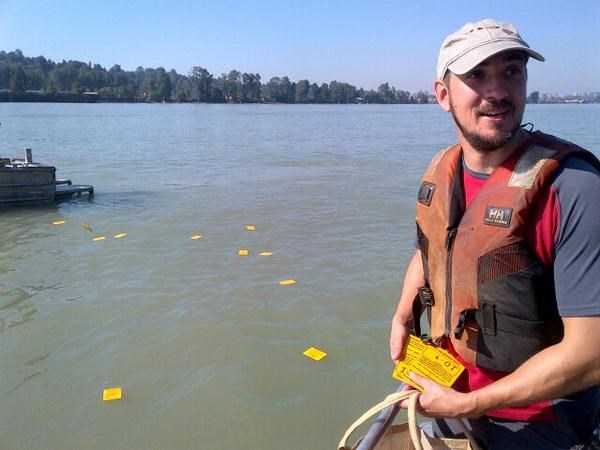Despite the promises you hear chanted on Burnaby Mountain these days, there is no conceivable way the oil industry will be out of our lives in our lifetime.
Oil is everywhere. It affects everything. The clothes you wear, the computer you use, the television you watch, the food you eat — all are touched by oil at some point, either at the creation stage or on their journey to the consumer.
A recent book by journalist Rose George, entitled 90 Per Cent of Everything, documents that almost everything you use in life has travelled to your destination by container ships, fueled by diesel oil. She spent a year on those ships, noting that pretty well everything we buy, we ship.
The little-noticed world of shipping, and the irreplaceable role it plays in the world, is just one example of how deeply oil has seeped into our daily lives.
Shutting down a pipeline, as those on Burnaby Mountain are hoping to do, may sound noble to some folks, but it will have little impact on the oil industry. It is too massive, too deeply entrenched in our society for the halting of a pipeline’s construction to constitute more than a blip in the overall scheme of things.
There is a refusal by many of those on Burnaby Mountain to acknowledge this fact, and to pretend that there is no inconsistency in advocating for eliminating or weakening an industry while at the same time relying on that same industry for their livelihood.
Of course, some do acknowledge this inconsistency and say just because they drive a car, that doesn’t mean they can’t work towards curbing carbon emissions. Fair enough, but lost in the chanting from many of the Kinder Morgan protesters is any notion of realism.
Another example of the quiet little “inconsistency” that exists for so many of those who condemn the oil industry, is the pension fund they pay into.
The B.C. public sector pension fund is administered by the B.C. Investment Management Corporation, which has more than $100 billion in investments that fund the pensions for more than 500,000 people — teachers, professors, MLAs, municipal workers etc.
Public sector unions such as CUPE and the B.C. Teachers’ Federation have been at the forefront when it comes to attacking the oil sands industry. Yet their members stand to financially benefit from that very industry, because of the inescapable role oil plays in pretty well everything, including their pensions.
The BCIMC’s investment holdings include $603 million invested in Suncor, one of the largest oil sands companies. Another $409 million is with Enbridge (you’ve heard of it, right?), while $372 million is with Canadian Natural Resources and $284 million is parked with Exxon Mobil.
All told, the BCIMC has almost $3.6 billion invested in the oil sands alone (including, ironically, a small stake in Kinder Morgan). Plus another half billion dollars in companies associated with pipelines. Plus hundreds of millions of dollars in Alberta real estate — including a property in Fort MacMurray, which is Ground Zero for the tar sands — and the Alberta government itself, all of which benefit hugely from that province’s oil sands development.
Want to fight climate change?
Drive less, fly less, buy less, and reconsider your investments. But don’t think that shutting down a pipeline is going to have much impact, other than easing some guilty consciences of people who will continue to use the oil industry just as much as they did before the protests on Burnaby Mountain.
Keith Baldrey is chief political reporter for Global BC



